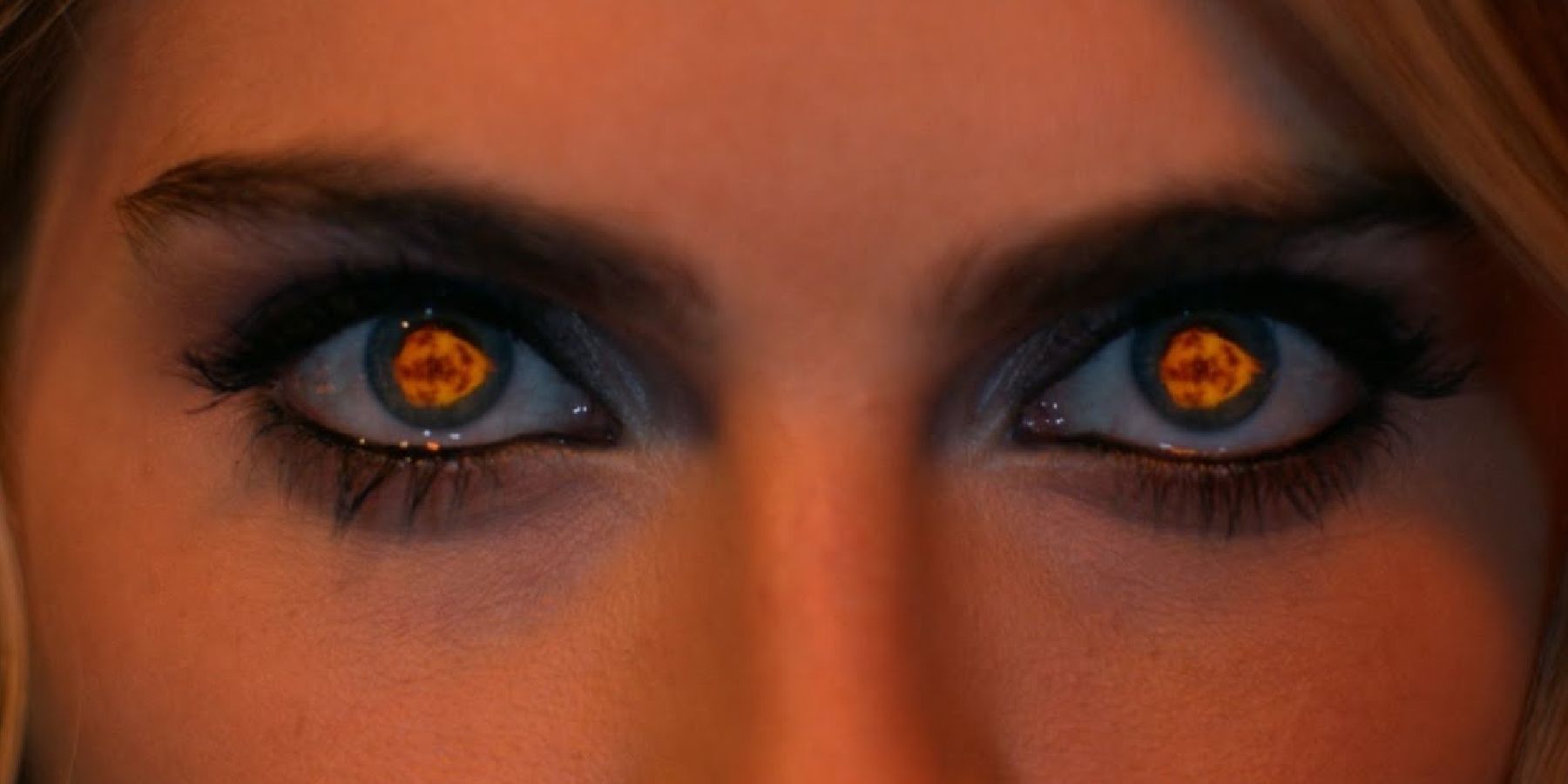There was a strong story reason for killing off new character Charly Burke in The Orville season 3. Played by Anne Winters, Charly was introduced in the newly rebranded The Orville: New Horizons' season premiere, "Electric Sheep" as one of the many Union officers who were prejudiced against artificial intelligence, Isaac (Mark Jackson). As Kaylon emissary, Isaac was unwittingly collecting strategic information on the Union ahead of the Kaylon declaring war on all organic life in The Orville season 2, episodes 8 and 9, "Identity."
In "Electric Sheep", it's revealed that many officers hold a grudge against the Orville's resident android, Isaac for his role in the devastating Kaylon attack on the Union. Despite the fact that he eventually foiled the attack, many believed that Isaac shouldn't have continued to serve aboard a Union vessel. Charly was the most vocal of these critics, revealing that she lost the woman she loved during their battle with the Kaylon. Charly and Isaac's fraught relationship is the most satisfying character arc in The Orville season 3, and her death provided a fittingly emotional resolution.
In The Orville season 3, episode 9 "Domino", the Union uses the creation of a devastating new weapon to negotiate a fragile peace with the Kaylon. The weapon has been developed by both Charly and Isaac, who have come to better understand each other over the previous eight episodes. However, not everyone trusts the peace process, leading to an Orville remake of Star Trek VI: The Undiscovered Country involving a massive conspiracy to ensure the end of the war. With the weapon now in the hands of the Krill and the Moclans, Charly sacrifices herself to destroy the weapon and save the Kaylon in her devastating final scene.
Was The Orville Killing Off Charly The Right Decision?
Shows like Star Trek and Stranger Things are often criticized for introducing new characters with the intention of killing them off later down the line to force some dramatic stakes from subpar material. The death of Charly in The Orville season 3, episode 9 could easily have been a similarly cynical move. However, her sacrifice and its impact on both Isaac and the entire Kaylon race is so well realized by Seth MacFarlane and his co-writers Brannon Braga and André Bormanis that it never feels like a cheap move.
Isaac is like Data in Star Trek, fascinated by humanity, their customs and their emotional nuances. In "Electric Sheep", Charly's hatred of him initially begins as a curiosity for the android, before it eventually leads to his decision to deactivate himself. When Charly is ordered to use her skills to reactivate Isaac, she is at pains to point out that she did it for those who love Isaac, rather than for the android himself. By the end of her story, she sacrifices herself to save not just Isaac, but his entire species. It's a decision that affirms to the Kaylon that not all organic lifeforms are as cruel and oppressive as their original creators. In moving beyond her own prejudice, Charly allows the Kaylon to move past theirs, securing the peace process between them and the Union.
The political subtext of Charly's sacrifice is reflective of The Orville's more mature new storytelling horizons. To tell the same story of a prejudiced character who makes the ultimate sacrifice with one of the existing Orville cast members would have required too much complicated retooling. Introducing a slightly antagonistic character to clash with Isaac in The Orville season 3, allowing both characters to learn and grow in the process was absolutely the right move for Charly's affecting story.

.jpg)
